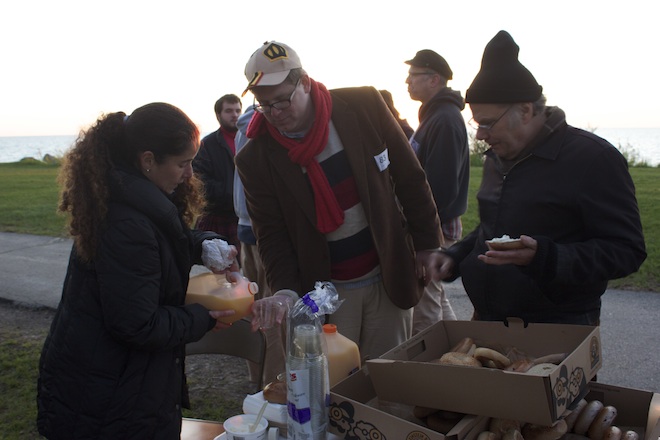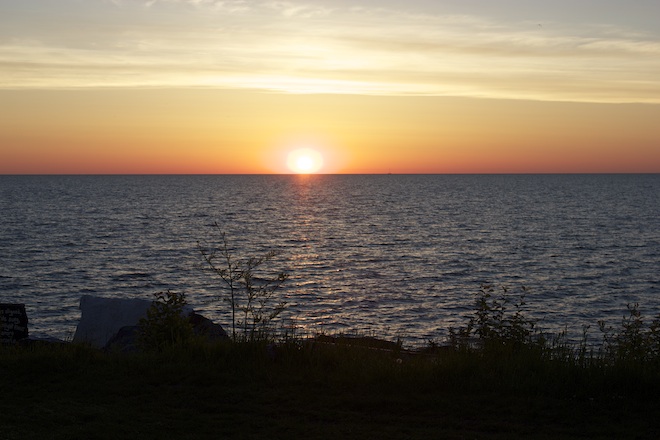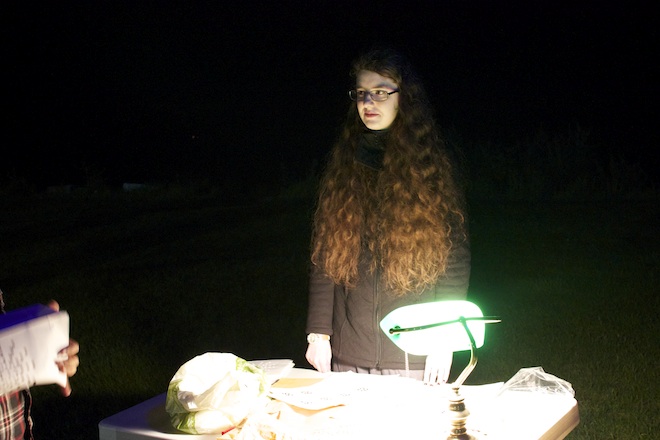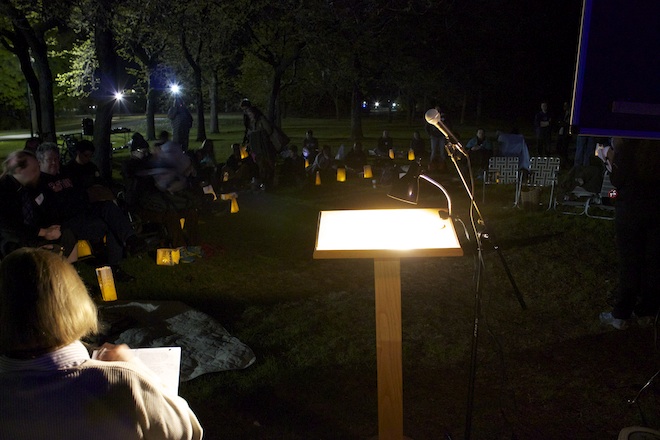We've got Dance Marathon, the Chicago marathon, Netflix marathons. Friday night at Northwestern, there was a special kind of marathon – a live reading of Homer's The Iliad.
About 80 students and faculty members gathered to read the epic Greek poem aloud at an event called “The Iliad by Moonlight.” The reading started just after 10 p.m. and lasted until dawn around 5 a.m.
Francesca Tataranni, the event organizer and Weinberg College of Arts and Sciences faculty member, spent the past few months with her students editing The Iliad, splitting it into over 80 pieces and assigning readers to each portion of the poem. Despite the daunting task of reading through the night, Casey Caldwell, a graduate student in the English department, said he was confident about finishing strong.
“It helps that I have a friend who’s reading 65th, which will probably be some time around 2 or 3 in the morning, so knowing you have friends who will be here that late helps you stick it out,” he said.
The event took place at the fire pit area of the Lakefill where everyone sat in 52 degree weather, bracing themselves for the overnight extravaganza under blankets and in sleeping bags. There was a table with water and snacks, and as for bathrooms, Tataranni jokingly advised, “try not to use the bushes.”
Freshman classics major, Hannah Rosenstein, said the idea of reading the poem aloud outside of a classroom was significant because it was a gesture to the poem’s historical tradition.
“Just reading it in the classroom is so much different than actually standing out there and performing it,” she said. “It was really originally intended to be told like this. This is how it was supposed to be.”
The stories of Homer were passed on as oral tradition which was not only the beginning of epic poetry, but also theatre. As the first reader spoke the first line of the Iliad, “Sing, Goddess, Achilles’ rage,” the theatricality of the night was palpable.
“It’s a very timeless story. It’s a war story but it’s also kind of a story that really speaks to the human condition,” Rosenstein said.
The readers braved the brisk Chicago May weather throughout the night and stepped up to the podium one by one to take turns reading passages. Around 5 a.m. the event concluded just as the sun rose over the Lakefill. After about seven hours of nonstop reading, Tataranni had good reason to feel proud.
“It was fantastic,” said Tataranni, seemly unaffected by the lack of sleep. “All the readers were very powerful and everyone brought strong emotions into the reading.”
The numbers dwindled due to the cold, but the marathon survivors celebrated with bagels and orange juice – a toast to the future, and a toast to the ancient past.



